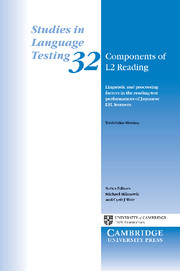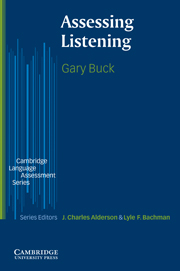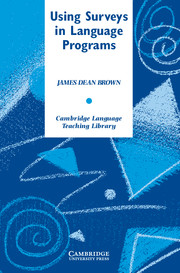Components of L2 Reading
Product description
The book investigates the explanatory variables for the passage-reading comprehension performance of Japanese EFL learners and their sentence-reading speed. Following rigorous preliminary studies evaluating the significance of the candidate variables and refining research instruments, a large scale main study was conducted. Regression analyses indicated that syntactic knowledge was the best predictor of passage-reading ability, while vocabulary breadth also contributed to its prediction. Subgroup analyses supported the significance of syntactic knowledge for both higher- and lower-ability readers. Sentence-reading speed was best predicted by the speed of lexical semantic access. The significance of this speed was also consistent across the group division. A subsequent exploratory factor analysis and structural equation modelling of the data indicated that the performances of the participants were best explained in terms of two latent factors: one based on careful text processing power and the other on efficiency of lexical semantic access.
Key features
- Includes up-to-date review of relevant literature on reading ability and its development and assessment.
- Explicates significant factors that predict L2 reading test performances.
- First attempt in the literature to empirically capture different kinds of underlying skills for reading in a second language.
- Combines theoretical insights and empirical investigation.
- Investigates the L2 reading construct from multiple methodological perspectives.
- Offers a progressive method of balancing rigour and feasibility in the preparation of research instruments.
From the World of Better Learning
Teacher’s restricted resource
✕We’re sorry. The resource you selected is for teachers only. Please browse and select a new resource available to you.






